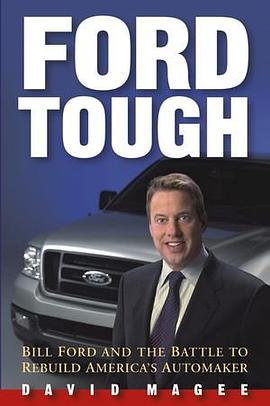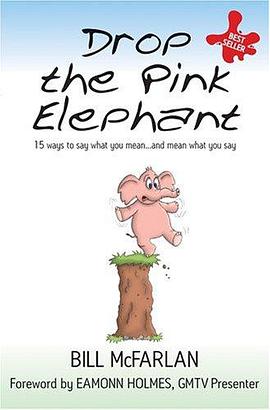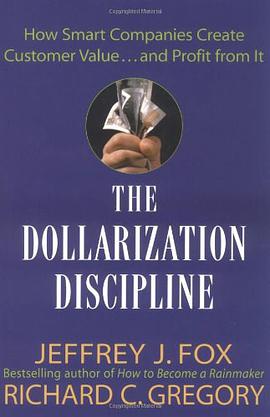

具体描述
在线阅读本书
Book Description
Ford Tough tells the story of Bill Ford, scion of one of America's most celebrated business dynasties, and his heroic battle to revive and reshape the company that bears his name. His task was daunting - to return Ford Motor to profitability and restore it to its rightful place as the leading innovator and standard-bearer in a highly competitive industry.
This narrative is the product of author David Magee's unequaled behind-the-scenes access, both to the young CEO and to the inner workings of the company. Magee examines Ford Motor's past successes and failures, explains the lessons Bill Ford has drawn from them, and reveals how he is using these lessons to drive the company toward a new era of innovation and growth. He also offers a detailed portrait of the first Ford to take charge of the company since 1979, a self-professed environmentalist who cares deeply about his employees and possesses a deep sense of personal and corporate responsibility - characteristics that have played a crucial role in the company's turnaround.
Ford Tough is more than a business biography, more than a company history, and more than an insightful portrait of a management style. It is a modern-day epic, the compelling tale of one man's battle for the things we value most in life, including family, tradition, and a promising future.
An inside look at the company that defined American industry and the man who runs it Ford Tough is the contemporary story of a company fighting to position itself in a new era of business, with the founder's visionary great-grandson as the leader of the new Ford Motor Company. Bill Ford Jr. is the first Ford family member to run the company since 1979. A self-professed environmentalist and by all accounts a "nice guy," he might not seem the most obvious choice for a hard-nosed corporate leader. But his vision of the company's future, his genuine care for his employees, his well-timed toughness, and his obvious concern for the long-term well-being of Ford Motor Company have proven to be essential characteristics for the leader of America's most famous brand. Ford watched the company decline beginning in 1999 as then-CEO Jacques Nasser tried to remake the automaker into a new economy business. When the plan did not work, Ford stepped in to rebuild the automaker and restore faith from employees, consumers, and dealers. He guided Ford Motor Company through its troubled times and a successful centennial celebration.
With its massive size and a troubled economy, leading Ford Motor Company into the twenty-first century will be no easy task. Ford Tough looks at the modern rebuilding and the future of a company that defines American know-how and American culture. David Magee (Lookout Mountain, Tennessee) is a former newspaper editor and columnist, as well as an automotive expert who has been featured on National Public Radio, Bloomberg TV, and the Discover Channel, among other news and media outlets. He has written for the Associated Press, the Clarion-Ledger (Jackson, MS), and the Oxford Eagle (Oxford, MS), and is also the author of Turnaround: How Carlos Ghosn Rescued Nissan.
From Publishers Weekly
Automotive authority Magee (Turnaround: How Carlos Ghosn Rescued Nissan) describes this book as the "story of an American struggle," but readers not of a business bent may have difficulties relating to the struggles of energetic CEO Bill Ford and the company that bears his family name. A "golden-boy heir grown into a family-man executive," Bill Ford is the great-grandson of automobile pioneer Henry Ford and the first family member to run the company since 1979. Drawing upon interviews with Bill and his friends, Magee paints a flattering portrait of the CEO, who got straight A’s in school, captained the football team, mixed with kids in blue collar neighborhoods, attended Princeton, worked his way up in the company on the executive track and got a seat on the board of directors when he was barely 30. In 2001, when the company started to flounder under then CEO Jac Nasser (who’s unflatteringly described as hard-driving, impulsive and "diminutive" at five-foot-six), Ford got in the driver’s seat and steered the company back on course. Magee notes that "assuming the full-time duties of CEO had not been high on Bill’s priority list," but the man himself later admits, "I’d be kidding if I said every day is a bed of roses, but this ‘reluctant CEO’ stuff is for the birds…. There is nothing I would rather be doing." The ills Bill helps the company overcome are no worse than what many businesses suffered after the dot-com crash, and other books (like Louis Gerstner’s Who Says Elephants Can’t Dance: Inside IBM’s Historic Turnaround) have tackled the topic more critically and comprehensively; however, business owners and managers may glean some helpful tips from the book’s final chapter: "Great Products, Strong Business, Better World."
From AudioFile
Chris Ryan's narrating skill--wry, intriguing, and elevating--is applied here to an unusually good story about the nip-and-tuck efforts of the Ford family to keep their auto brand on solid ground in the midst of unprecedented threats to their business. It's a miracle that any Fords are still involved, let alone thriving, as Bill Ford is at the helm of the company. He's a controversial and visible captain of a sometimes foundering ship, but one whose history suggests more altruism than ego. He's genuinely connected with the muscle and sinew of the company. A wistful, insightful tale, Bill Ford's story is also an overview of how U.S. businesses have been challenged by globalization and the computer age. T.W.
Book Dimension
Height (mm) 232 Width (mm) 159
作者简介
目录信息
读后感
此书介绍了: 90年代福特车每辆可赚2000美金。F系列皮卡连续26年最热卖。 问题:1.2000年的如何失去竞争力2.为何在核心部门亏损3.比尔如何通过回归基本方法扭转亏损。 错误:1.反应迟,采用柔性生产。2.没有奖励刺激销售3.忽视自身牌子,而过分关注其高端购买的牌子如猎豹,路...
评分此书介绍了: 90年代福特车每辆可赚2000美金。F系列皮卡连续26年最热卖。 问题:1.2000年的如何失去竞争力2.为何在核心部门亏损3.比尔如何通过回归基本方法扭转亏损。 错误:1.反应迟,采用柔性生产。2.没有奖励刺激销售3.忽视自身牌子,而过分关注其高端购买的牌子如猎豹,路...
评分此书介绍了: 90年代福特车每辆可赚2000美金。F系列皮卡连续26年最热卖。 问题:1.2000年的如何失去竞争力2.为何在核心部门亏损3.比尔如何通过回归基本方法扭转亏损。 错误:1.反应迟,采用柔性生产。2.没有奖励刺激销售3.忽视自身牌子,而过分关注其高端购买的牌子如猎豹,路...
评分此书介绍了: 90年代福特车每辆可赚2000美金。F系列皮卡连续26年最热卖。 问题:1.2000年的如何失去竞争力2.为何在核心部门亏损3.比尔如何通过回归基本方法扭转亏损。 错误:1.反应迟,采用柔性生产。2.没有奖励刺激销售3.忽视自身牌子,而过分关注其高端购买的牌子如猎豹,路...
评分此书介绍了: 90年代福特车每辆可赚2000美金。F系列皮卡连续26年最热卖。 问题:1.2000年的如何失去竞争力2.为何在核心部门亏损3.比尔如何通过回归基本方法扭转亏损。 错误:1.反应迟,采用柔性生产。2.没有奖励刺激销售3.忽视自身牌子,而过分关注其高端购买的牌子如猎豹,路...
用户评价
读罢此书,我感到一种久违的满足感。它并非那种情节简单、一眼望到底的通俗读物,而是充满了哲学思辨和文化符号的文本。作者的文字功力令人叹服,他似乎能用最简洁的词语勾勒出最宏大的意象。故事线索繁复却不混乱,人物关系错综复杂却逻辑清晰,每一个配角都有其存在的意义和深远的背景故事,绝非脸谱化的工具人。书中对于特定历史时期社会结构的剖析入木三分,那种对时代脉络的把握,展现了作者深厚的学识和独特的洞察力。阅读过程中,我不得不时常停下来,回味某些富有韵味的句子,它们像珍珠一样散落在文字的海洋中,需要细心打捞。如果你期待的是那种能够让你在合上书本后,还能在脑海中回响许久的、富有层次感的文学作品,那么这本书无疑是一个绝佳的选择。
评分这本关于探险与生存的小说,情节跌宕起伏,让我完全沉浸其中。作者构建了一个极具张力的世界观,主角的每一次抉择都充满了不确定性,让人屏息凝神。书中对人性的刻画尤为深刻,在极端环境下,人性的光辉与阴暗面被展现得淋漓尽致。我尤其欣赏作者对于环境描写的细腻笔触,那些荒芜的景象、变幻莫测的天气,仿佛触手可及,极大地增强了阅读的代入感。情节的推进节奏把握得恰到好处,该紧张时毫不拖沓,该沉思时又留有余地,读来酣畅淋漓。总的来说,这是一次极其充实的阅读体验,它不仅仅是一个故事,更像是一次精神上的洗礼,让人在跟随主角历经磨难的同时,也审视了自身的勇气与局限。我向所有寻求深度阅读体验的读者强烈推荐这本书,它绝对值得你投入时间去细细品味每一个转折和细节。
评分我通常不太喜欢太过于注重个人内心独白的文学作品,但这本书却是一个例外。作者花了大量的篇幅去描绘主角的内心世界,那些挣扎、自我怀疑和最终的释然,都写得极其真诚,没有丝毫矫揉造作。这种对“内在旅程”的关注,与书中宏大的外部冲突形成了鲜明的对比和有力的互文。语言风格是偏向古典和抒情的,大量运用比喻和象征手法,使得即便是描述日常琐事,也充满了诗意的光泽。这本书的美感在于它的克制与爆发的平衡,它不会用华丽的辞藻堆砌,而是用精准的意象来冲击读者的感官。读完后,我感觉自己的情绪得到了很好的梳理,仿佛经历了一场心灵的深度按摩。它像是一壶需要慢火细品的陈年佳酿,初尝可能略显平淡,但回味无穷,值得一再品读。
评分说实话,我一开始对这本厚厚的书有些望而却步,但一旦翻开,就再也放不下了。它的叙事方式非常新颖,采用了多重视角交错推进的方式,使得故事的真相如同多面体一般,随着翻页逐渐完整地呈现在读者面前。这种结构上的巧妙设计,让“解谜”的过程本身就成为了一种乐趣。书中对于情感的描摹细腻到近乎残酷,特别是关于失落与和解的主题,触动了我内心最柔软的部分。我发现自己好几次因为代入感太强而红了眼眶,但那绝不是廉价的煽情,而是基于对角色命运的深刻共情。它的篇幅虽然不短,但每一章的结尾都设置了悬念或高潮,迫使你忍不住想知道“接下来会发生什么”。这本书在保持娱乐性的同时,也成功地完成了对复杂人际冲突的深刻探讨,是一部雅俗共赏的上乘之作。
评分这本书带给我的震撼,更多地体现在其无与伦比的想象力和细节的铺陈上。作者似乎构建了一个完全自洽的微观宇宙,其中的规则、信仰甚至语言系统都显得真实可信。我惊喜地发现,许多看似偶然的事件,其实都是先前埋下的伏笔,这种结构上的精巧令人拍案叫绝。作者对于细节的执着令人敬佩,比如对某种稀有植物生长习性的描述,或是对某种古老仪式的繁复步骤的还原,都显示出作者下了大量的案头工作。阅读过程中,我仿佛置身于那个充满异域风情的场景之中,嗅到了空气中的味道,感受到了脚下土地的温度。它成功地将奇幻元素与现实主义叙事熔铸一炉,创造出一种既陌生又亲切的阅读体验。我强烈推荐给那些热衷于构建宏大世界观的读者,这本书绝对能满足你们对深度沉浸式阅读的渴望。
评分实用A,创新B,内容B。 福特90年代到2000年初的辉煌到挫折。以历史为鉴,在如今转型mobility的改革期尤其有用。坚持核心业务,关注质量可靠性,不要太分散战线。
评分实用A,创新B,内容B。 福特90年代到2000年初的辉煌到挫折。以历史为鉴,在如今转型mobility的改革期尤其有用。坚持核心业务,关注质量可靠性,不要太分散战线。
评分实用A,创新B,内容B。 福特90年代到2000年初的辉煌到挫折。以历史为鉴,在如今转型mobility的改革期尤其有用。坚持核心业务,关注质量可靠性,不要太分散战线。
评分实用A,创新B,内容B。 福特90年代到2000年初的辉煌到挫折。以历史为鉴,在如今转型mobility的改革期尤其有用。坚持核心业务,关注质量可靠性,不要太分散战线。
评分实用A,创新B,内容B。 福特90年代到2000年初的辉煌到挫折。以历史为鉴,在如今转型mobility的改革期尤其有用。坚持核心业务,关注质量可靠性,不要太分散战线。
相关图书
本站所有内容均为互联网搜索引擎提供的公开搜索信息,本站不存储任何数据与内容,任何内容与数据均与本站无关,如有需要请联系相关搜索引擎包括但不限于百度,google,bing,sogou 等
© 2026 book.wenda123.org All Rights Reserved. 图书目录大全 版权所有




















